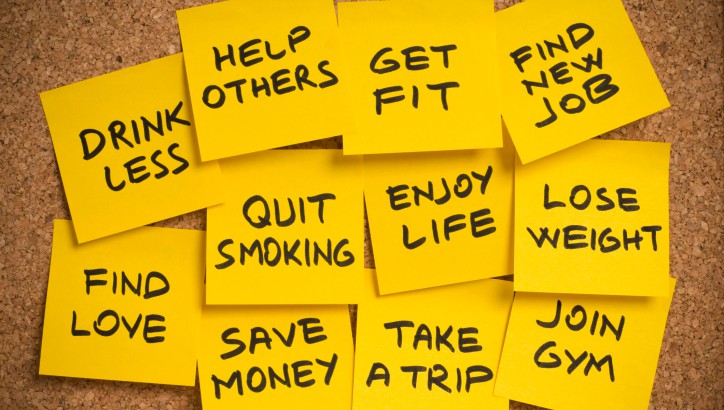How to make good resolutions?
mis à jour le 1 January 2016 à 10:02If you're stuck coming with resolutions for the new year, here's some advice from Michelle Jean-Baptiste, author of "My good intentions come into action."

Michelle Jean-Baptiste is the author of "My good intentions come into action: 10 weeks to get there" (1).
If you want to "be happy", ask yourself what would make you really happy and make a list of things and in which one of them could be your future resolution. Most resolutions are not achieved because they are: blurred, extreme, too strict, negative or do not depend only on us. Example of good resolutions that have any chance of not being held: I'll change my life, I'll play sports, i'll lose 20 kilos, i'll become bilingual in French and Chinese...
COMMITMENTS TO OURSELVES
Many resolutions are not held because they do not match your desires but to those of others around you. If you put yourself to play sports by what everyone tells you that it is this you have "to do", you will feel doubly frustrated and depressed because your resolution will not be held and your deep desire is not satiated. So once again, craft a resolution that's connected to your desires and you will be able to turn it into a goal.
Good resolutions are foremost solutions, the commitments we make to ourselves, which depend only on us and lead us to meet one or more needs to shed tensions, to set objectives to return to a normal well-being. "Good" does indeed say beneficial, that is to say, which brings well-being, of living, which is positive and makes you move in the right direction, and "Resolution" comes from the Latin meaning resolvere "undo what is established".
YOUR TURN TO PLAY !
Ask yourself what you want to see unravel? What matters most to you right now? What exactly would you like to improve? When you have chosen three wishes, turn them into positive goals, that is to say SMART objectives:
S for Single. A good goal is precise, positive and understandable.
M for Measurable. A good goal is based on concrete facts that allow you to know if it has been achieved.
A for Ambitious. A good goal is to touch the dream if we do not find the energy to achieve.
R for Realistic. A good goal should be achievable and meet real need in the real world.
T Temporal. A good goal should be limited in time otherwise we run the risk of continually returning to it the next day.
(1) Fortuna Editions.
Fabienne Broucaret



